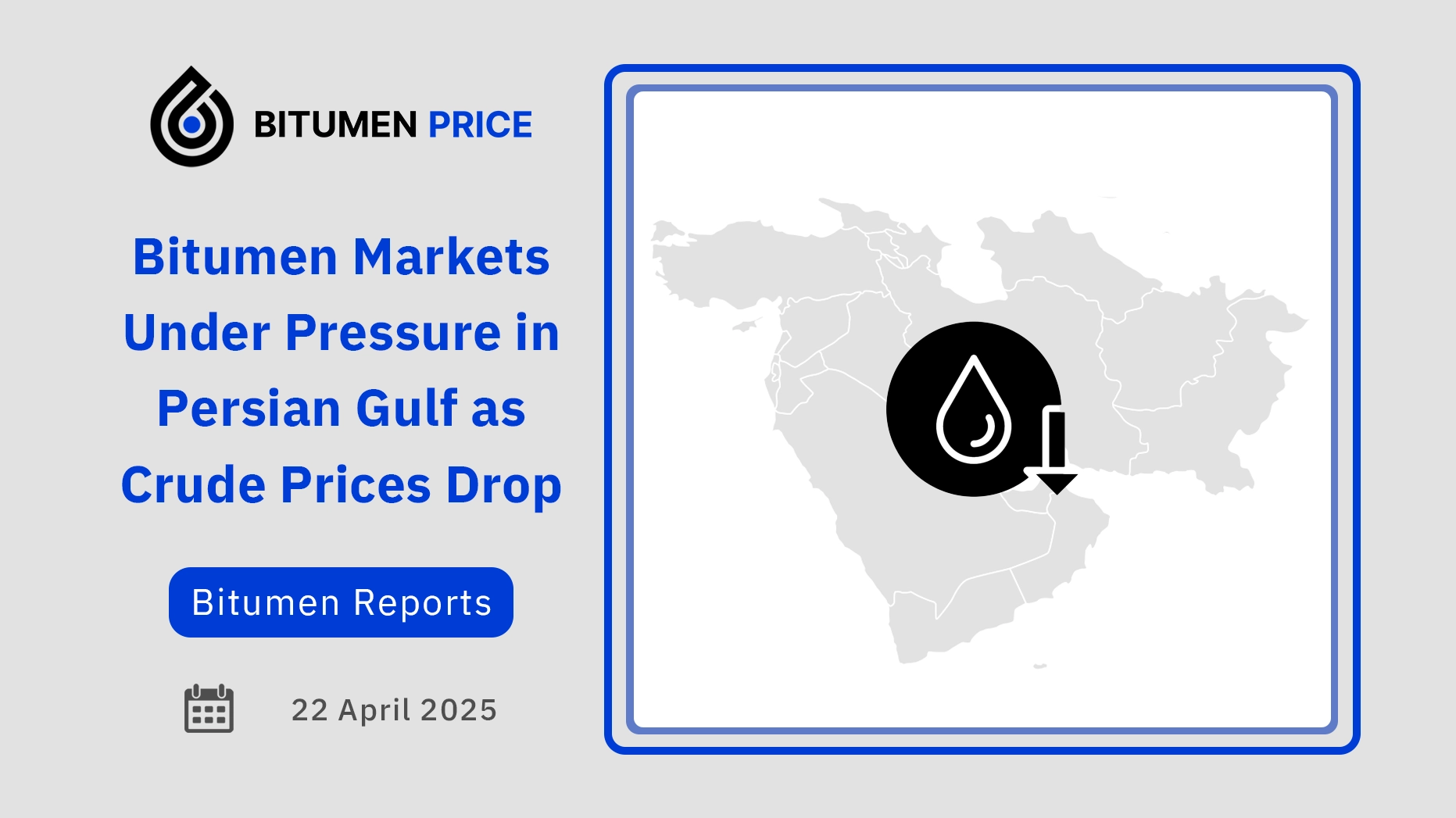This week, the bitumen market across Southeast Asia reflected a mix of seasonal slowdown, reduced demand due to holiday rainfall, and economic uncertainty. Singapore prices declined under regional competition, while Demand across Malaysia, Indonesia, and Vietnam remained sluggish. Thailand saw a temporary dip but is expected to rebound soon. Meanwhile, Bahrain cut export prices with little effect on demand, and Iran’s price fluctuations reflected global political tension.
Price Drop in Singapore
Bitumen prices in Singapore declined further as regional competition boosted. With Southeast Asia well-supplied, Singapore-origin cargoes struggled to find buyers. Tank truck deliveries to Malaysia fell from $472 to 475/ per ton.
Holidays and Rain Keep Demand Low in Malaysia
The extended Hari Raya Puasa holiday slowed market activity in Malaysia, and frequent rains in Johor Bahru, Kuching, and Kuala Lumpur disrupted road construction efforts. While a few small-scale maintenance projects continued, overall demand remained weak.
Weak Demand as Supplies Hold in Indonesia
Indonesia’s bitumen market showed little movement. With limited government funding and sluggish paving activity, importers reported low-to-moderate product levels, enough to meet demand through at least the end of May.
Transport Recovery Expected in Thailand
During the Songkran festival (13–15 April), road bans on heavy trucks, including bitumen tankers, reduced domestic deliveries. Despite this, sources expect a demand rebound as several paving projects will resume shortly.
Delay Fresh Orders in Vietnam
Vietnamese importers began inquiring about loading cargoes in late April and May, anticipating improved demand. However, most still held leftover products from March, as poor weather had delayed roadwork.
$50 Price Cut in Bahrain
FOB Sitra seaborne prices fell by $50/t to $370/t, impacted by declines in crude and fuel oil prices. However, demand remained limited, and no vessels were scheduled to load this week. An upcoming refinery maintenance in May is expected to have no impact on supply.
Current Volatility in Iran
Bitumen prices dipped in Iran following a drop in vacuum bottom feedstock values and weaker buying interest. The Iranian rial’s instability added pressure, but a tight supply environment helped prevent steeper declines. Some sellers paused offers, awaiting currency stabilization and clarity in ongoing US-Iran negotiations.
Charts
Bitumen Price In Middle East (Updated on April 22, 2025)
How do these regional shifts affect your import costs?
Leave a comment or message our team.

